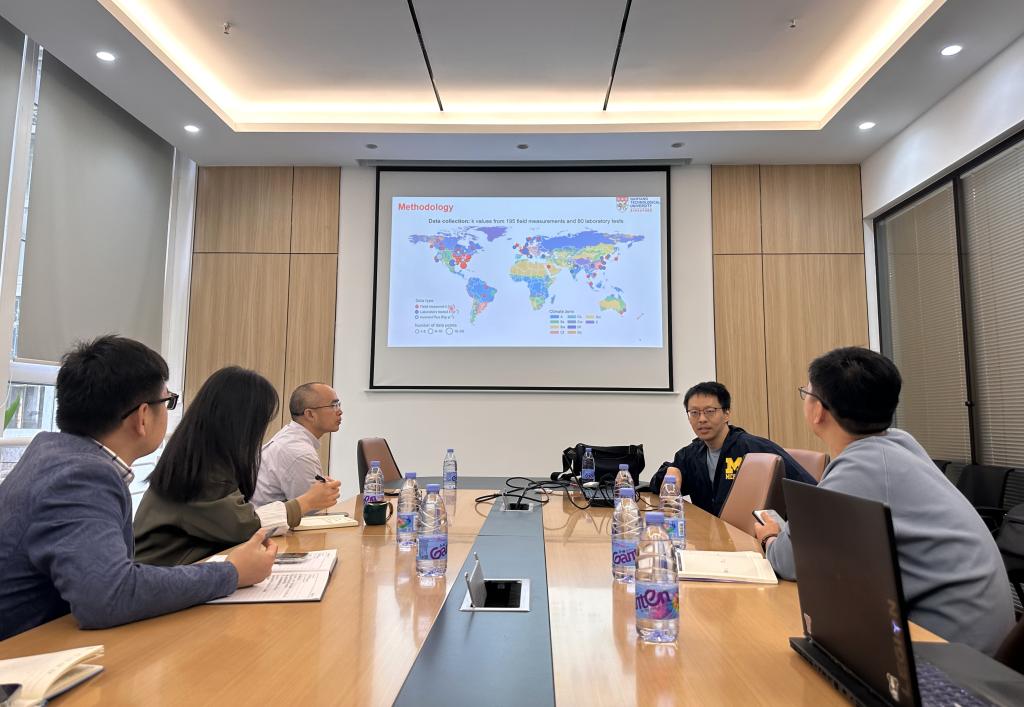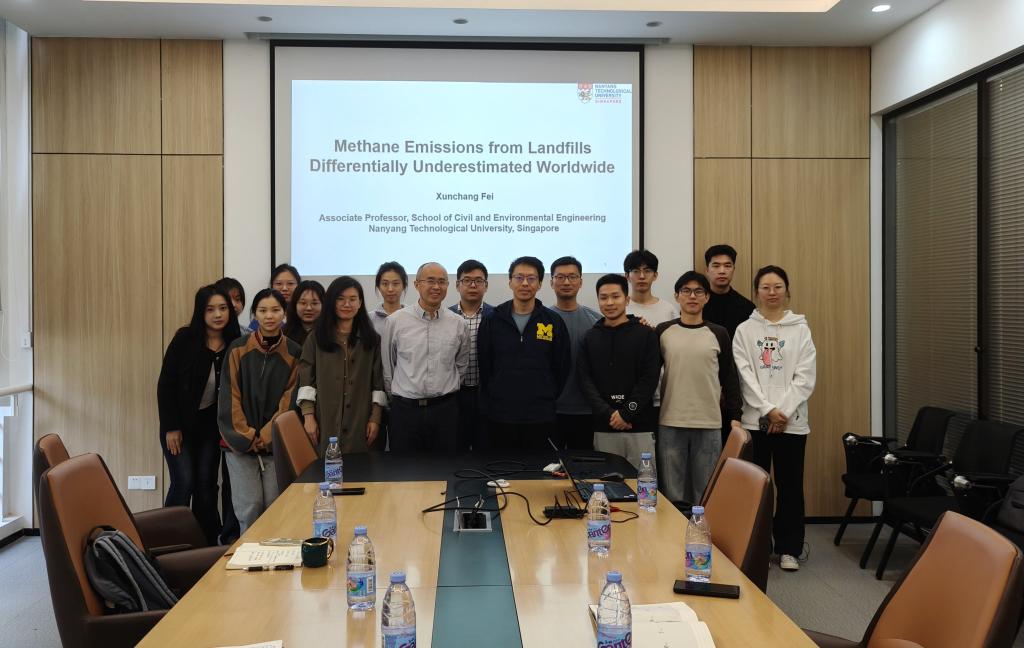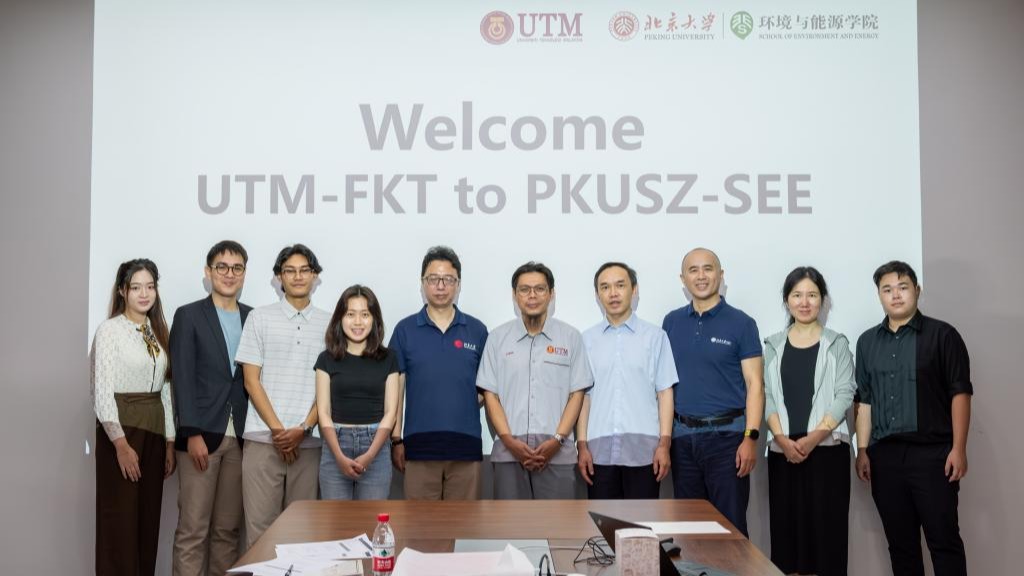On December 10, 2024, at the earnest invitation of Professor Qiyong Xu from our school, Professor Xunchang Fei from Nanyang Technological University, Singapore, visited our school to deliver a fascinating academic lecture titled "Management of Municipal Solid Waste and Greenhouse Gas Emissions," attracting the enthusiastic participation and attention of numerous faculty and students.

"Based on remote sensing satellite data and the analysis of traditional model results, we believe that the model currently recommended by the Intergovernmental Panel on Climate Change (IPCC) for estimating methane emissions from landfills globally is inaccurate," began Professor Fei's report, questioning the mainstream international assessment models in the field.
Professor Fei elaborated on his group's latest research published in Nature Sustainability. He first pointed out that landfills are the third-largest anthropogenic source of methane emissions globally, with annual emissions reaching 50 Tg, accounting for about 10% of total global anthropogenic methane emissions. Currently, the first-order decay model recommended by the IPCC is commonly used to estimate methane emissions from landfills. However, using emissions calculated from satellite remote sensing as a benchmark, they found deviations in the currently mainstream methane emission assessment model recommended by the IPCC. They specifically revised the estimation method for the rate-controlling parameter k in the original model, considering factors such as waste composition and environmental conditions, and found that the accuracy of methane emissions calculated after revising the k value was significantly higher than that obtained using the currently widely used IPCC-recommended model. Extending the revised emission estimation method to landfills worldwide, they discovered that the methane emissions estimated using the currently mainstream IPCC method were significantly underestimated, with underestimations of up to 200% in some sites. The newly revised model and validative assessments based on a global perspective are expected to provide new standards for methane emission assessments of landfills worldwide.
After the report, faculty and students engaged in in-depth exchanges and discussions with Professor Fei on topics such as remote sensing satellite acquisition technology for methane emission fluxes in landfills, the establishment and evaluation of methane emission models, and data mining based on machine learning. Professor Fei not only provided detailed answers to the questions raised by faculty and students with his extensive academic knowledge but also imparted valuable experience on how to select research topics and innovate methodologies in scientific research from a global environmental perspective. Finally, Professor Fei encouraged the students present to be bold in proposing new standards and insights in scientific research, daring to break conventions and challenge the mainstream, providing profound inspiration to the faculty and students present.

Moving forward, our school will continue to closely focus on the development concept of "problem-oriented, North-South collaboration, AI-driven, innovative integration," and sustainably concentrate on "AI4S." Hosting high-quality research forums will remain an important vehicle for helping students continuously broaden their academic horizons and stimulate innovative inspiration.






